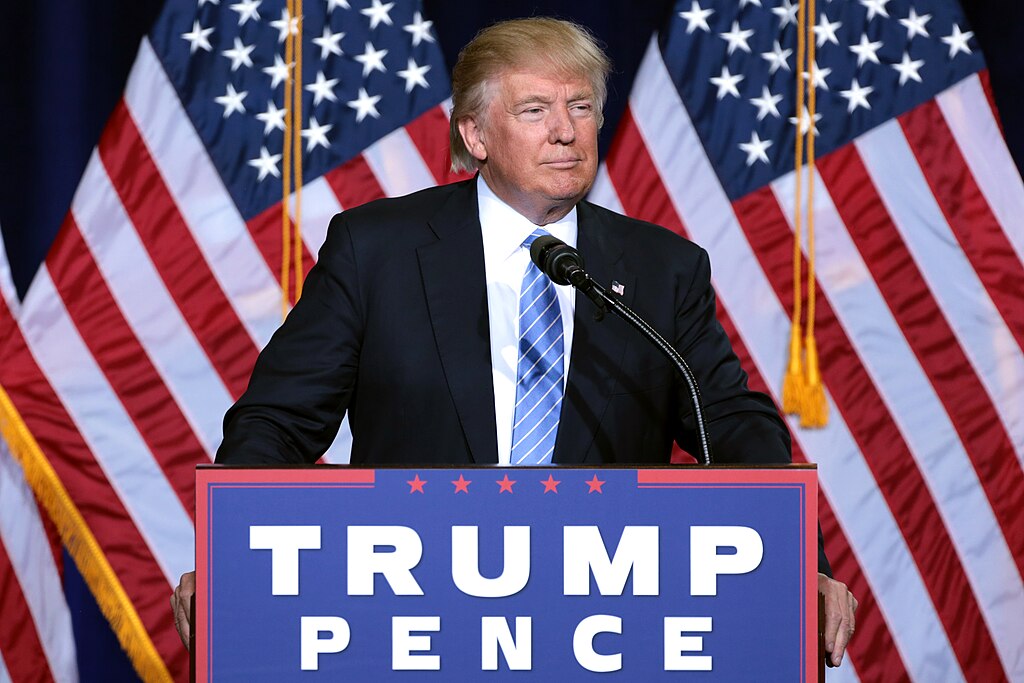In a candid discussion during an appearance on the PBD Podcast on October 17, 2024, former President Donald Trump made controversial comments about the Ukraine conflict. Trump directly blamed Ukrainian President Volodymyr Zelensky for allowing the war to happen, stating that Zelensky "should never have let that war start." Trump's remarks have reignited debate over international relations, conflict responsibility, and the U.S. role in foreign policy.
Trump’s Key Statements on the Ukraine Conflict
Trump’s view on the Russia-Ukraine war caught many by surprise. He shifted part of the responsibility from Russian aggression to Ukraine’s leadership, specifically questioning Zelensky's actions before the conflict began. Trump’s stance suggests that a lack of diplomatic maneuvering on Ukraine’s part contributed to the war’s initiation.
“Zelensky is a great salesman,” Trump remarked, accusing the Ukrainian leader of lobbying for U.S. financial support but failing to prevent the war in the first place. The former president also called the conflict a “loser,” expressing doubt about the strategic and economic merits of the U.S. continuing to aid Ukraine.
While his comments appear critical of Zelensky’s leadership, Trump also mentioned that he had a "very good relationship" with the Ukrainian president. This statement leaves room for interpretation—some see it as strategic advice in hindsight rather than personal animosity.
U.S. Foreign Policy and Economic Implications
Trump’s remarks extend beyond Zelensky, critiquing the Biden administration’s continued financial aid to Ukraine, which he claims is unsustainable. Trump argued that ongoing support is detrimental to the U.S. economy, casting doubt on whether the American public and its leaders should continue funding the war effort. He noted that the conflict has led to immense financial strain, with the U.S. being dragged into a “losing” situation.
This economic angle reflects Trump’s long-standing position that the U.S. should avoid prolonged foreign entanglements and instead prioritize domestic concerns.
Public Reaction and Policy Debate
Unsurprisingly, Trump’s comments stirred controversy. Critics argue that his assessment oversimplifies the complexities of international conflict. Shifting blame toward Zelensky for Russia’s invasion overlooks Russia's aggression and Ukraine's right to defend its sovereignty. Supporters of Ukraine, both in the U.S. and internationally, see the country’s defense as a necessary stand against authoritarian expansion.
Despite this, Trump's comments resonate with a segment of the U.S. public frustrated by seemingly endless foreign wars and the associated economic costs. Many Americans question the level of U.S. involvement in Ukraine, especially given the mounting financial aid packages.
Earlier this year, Zelensky himself had spoken against any U.S. accommodation of Russia, emphasizing that Ukraine was defending itself against an unprovoked invasion. He dismissed any suggestions that the war could have been avoided if Ukraine had acted differently.
Impact on U.S. Foreign Policy and Future Outlook
Trump’s remarks add to the ongoing debate in the U.S. regarding its role in global conflicts. With the 2024 presidential election looming, Trump’s stance could influence public opinion, particularly among voters who are wary of continued military involvement abroad. His call for a more isolationist approach reflects a broader sentiment within parts of the American political spectrum, but it also risks alienating those who support strong international alliances and military partnerships.
As the war in Ukraine drags on, Trump's comments will undoubtedly continue to fuel the discussion over how the U.S. should engage in global conflicts moving forward.



 Trump Orders Federal Agencies to Halt Use of Anthropic AI Technology
Trump Orders Federal Agencies to Halt Use of Anthropic AI Technology  Trump Says U.S. Attacks on Iran Will Continue, Warns of More American Casualties
Trump Says U.S. Attacks on Iran Will Continue, Warns of More American Casualties  Middle East Conflict Escalates After Khamenei’s Death as U.S., Israel and Iran Exchange Strikes
Middle East Conflict Escalates After Khamenei’s Death as U.S., Israel and Iran Exchange Strikes  EU Urges Maximum Restraint in Iran Conflict Amid Fears of Regional Escalation and Oil Supply Disruption
EU Urges Maximum Restraint in Iran Conflict Amid Fears of Regional Escalation and Oil Supply Disruption  Trump to Address Nation as U.S. Launches Strikes in Iran, Axios Reports
Trump to Address Nation as U.S. Launches Strikes in Iran, Axios Reports  Macron Urges Emergency UN Security Council Meeting as US-Israel Strikes on Iran Escalate Middle East Tensions
Macron Urges Emergency UN Security Council Meeting as US-Israel Strikes on Iran Escalate Middle East Tensions  Iran Supreme Leader Ayatollah Ali Khamenei Killed in Israeli, U.S. Strikes: Reuters
Iran Supreme Leader Ayatollah Ali Khamenei Killed in Israeli, U.S. Strikes: Reuters  Israel Strikes Hezbollah Targets in Lebanon After Missile and Drone Attacks
Israel Strikes Hezbollah Targets in Lebanon After Missile and Drone Attacks  Trump Announces U.S. Strikes on Iran Navy as Conflict Escalates
Trump Announces U.S. Strikes on Iran Navy as Conflict Escalates  U.S. Deploys Tomahawks, B-2 Bombers, F-35 Jets and AI Tools in Operation Epic Fury Against Iran
U.S. Deploys Tomahawks, B-2 Bombers, F-35 Jets and AI Tools in Operation Epic Fury Against Iran  Argentina Senate Approves Bill to Lower Age of Criminal Responsibility to 14
Argentina Senate Approves Bill to Lower Age of Criminal Responsibility to 14  Pakistan-Afghanistan Tensions Escalate as Taliban Offer Talks After Airstrikes
Pakistan-Afghanistan Tensions Escalate as Taliban Offer Talks After Airstrikes  Australian PM Calls Alleged Western Australia Terror Plot “Deeply Shocking” After Arrest
Australian PM Calls Alleged Western Australia Terror Plot “Deeply Shocking” After Arrest  Germany and China Reaffirm Open Trade and Strategic Partnership in Landmark Beijing Visit
Germany and China Reaffirm Open Trade and Strategic Partnership in Landmark Beijing Visit  Zelenskiy Urges Change in Iran After U.S. and Israeli Strikes, Cites Drone Support for Russia
Zelenskiy Urges Change in Iran After U.S. and Israeli Strikes, Cites Drone Support for Russia  U.S. Lawmakers Question Trump’s Iran Strategy After Joint U.S.-Israeli Strikes
U.S. Lawmakers Question Trump’s Iran Strategy After Joint U.S.-Israeli Strikes  Trump Says U.S. Combat Operations in Iran Will Continue Until Objectives Are Met
Trump Says U.S. Combat Operations in Iran Will Continue Until Objectives Are Met 































